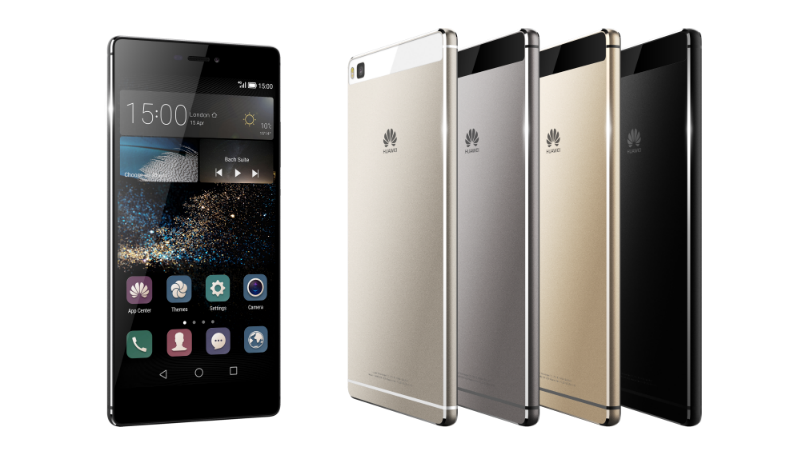
Huawei P8: The best flagship smartphone you've never heard of [Review]
Huawei is not, perhaps, a name that springs immediately to mind when you think about smartphones. But with this latest model the Chinese manufacturer is making a bid for a slice of the top end market dominated by the likes of the iPhone and Samsung Galaxy.
You get the impression of quality from the moment you receive it. It comes in a smart, black plastic box with a cardboard slip case; the phone sits in this with a shiny edge uppermost so it’s like opening a piece of jewelry.

Huawei's LiteOS Internet of Things operating system is a minuscule 10KB
Chinese firm Huawei today announces its IoT OS at an event in Beijing. The company predicts that within a decade there will be 100 billion connected devices and it is keen for its ultra-lightweight operating system to be at the heart of the infrastructure.
Based on Linux, LiteOS weighs in at a mere 10KB -- smaller than a Word document -- but manages to pack in support for zero configuration, auto-discovery, and auto-networking. The operating system will be open for developers to tinker with, and is destined for use in smart homes, wearables, and connected vehicles.
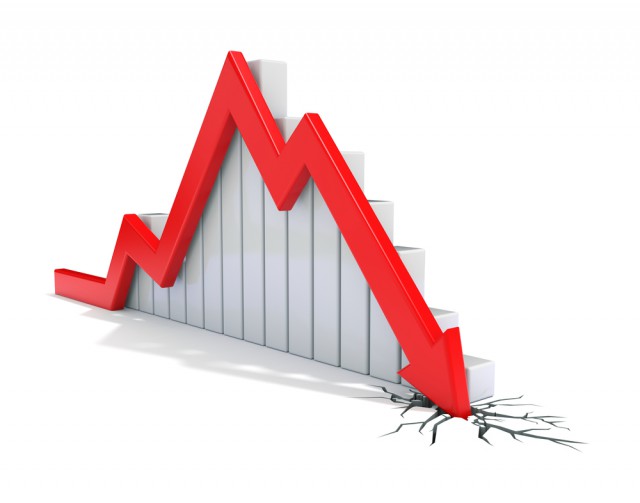
The smartphone craze is over in China, as shipments decrease
China's smartphone market has declined year-over-year for the first time in six years, according to a new report from IDC. In the first quarter of the year, shipments decreased by 4.3 percent compared to the same period from 2014, with the likes of Samsung and Lenovo posting huge drops.
Apple leads the pack in China, shipping 14.5 million iPhones in Q1 2015, 62.1 percent more than a year ago. Meanwhile, rival Samsung, which comes in fourth place, saw shipments of just 9.6 million units, a whopping 53 percent lower compared to Q1 2014.
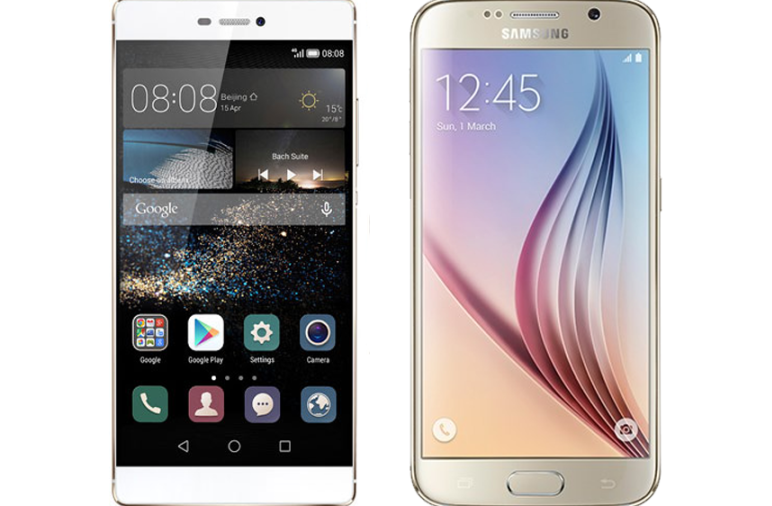
Huawei P8 vs Samsung Galaxy S6: Which should you choose?
Huawei has officially announced the P8, the flagship for 2015. It is the Chinese company’s attempt to compete with Apple’s iPhone 6 and Samsung’s Galaxy S6, two of the biggest devices this year.
Even though Huawei won out against Samsung last year in China and some other markets, the Galaxy S6 is a formidable smartphone and shows the South Korean giant is back in business -- but which flagship is better?
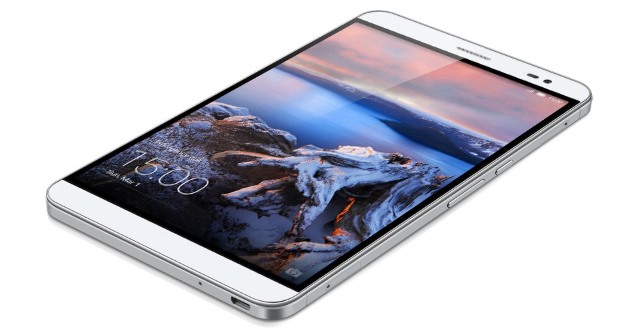
Smartphones hit 7 inches as Huawei announces MediaPad X2
The announcements are coming thick and fast from MWC 2015 in Barcelona. As well as the Huawei Watch, Huawei also announced the MediaPad X2. As you might guess from the name, this is a tablet, but dual SIM support means that it is essentially a gigantic smartphone with no less than 7 inches of screen to play with.
And it's more than just the dimensions that are supersized -- the 2.0 GHz Kirin930 64 bit octa-core packs quite a punch. Being a brand new device, it's little surprise that Android 5.0 Lollipop is found pre-installed, and this is supplemented by the third version of Huawei's own Emotion UI. But there is much more to this phone/tablet crossover -- perhaps the first device to genuinely justify the horrific portmanteau phablet.
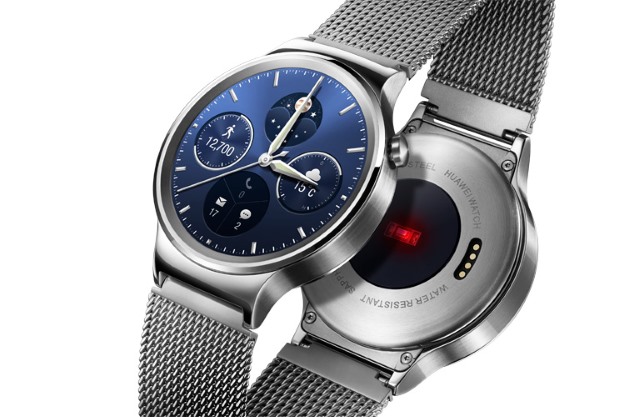
Huawei Watch could be the first smartwatch you actually want to wear
At MWC 2015, Chinese manufacturer Huawei announced its first foray into Android Wear. The company unveiled the rather predictably-named Huawei Watch today, and it's already got tongues wagging around the world. The screen is a 1.4 inch, 400 x 400 pixel AMOLED affair which is, importantly, completely round.
Packing 286 pixels per inch, the Sapphire crystal screen has a higher resolution than the Watch Urbane launched by LG today. The stainless steel case gives the watch a quality look and feel, and the device boasts a bevy of on-board sensors for tracking different activities. What is likely to prove the Huawei Watch's key to success, however, is the fact that it so closely resembles the look of a regular watch.
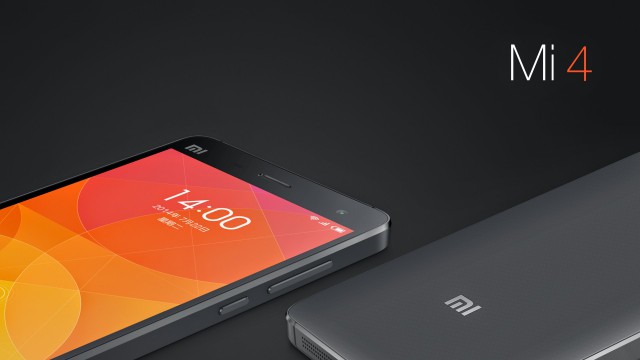
Xiaomi is the third-largest smartphone maker
For a manufacturer that has only been selling smartphones for a couple of years now, Xiaomi is doing better than expected. The Chinese company, founded in 2012, became the third-largest smartphone vendor in Q3 2013, surpassing the likes of Lenovo, LG and Huawei. Xiaomi is also closing in fast on Apple, which has enjoyed a comfortable lead, in volumes, over its immediate competition.
Xiaomi's shipments have increased by 211.3 percent year-over-year, to 17.3 million units in the past quarter from just 5.6 million units in Q3 2013. That is more than eight times higher than the market average, of 25.2 percent. Meanwhile, Apple's shipments only grew by a mere 16.1 percent, which is well below the market average, to 39.3 million units from 33.8 million units.

Smartphone market sees stiffer competition
The competition is heating up in the smartphone space, as, in Q3 2014, a dozen vendors have what it takes to shake up the top five smartphone makers list, according to a new report from research firm IDC. Judging by the standing from Q2 2014, the likely players in danger of losing their spots are Huawei, Lenovo and LG.
Samsung and Apple continue to be in a position of strength, with the two being responsible for 25.2 percent (74.3 million) and 11.9 percent (35.1 million), respectively, of the 295.3 million smartphones shipped in the quarter that ended June 30. That said, both lost market share compared to Q2 2013, when they claimed 32.3 percent and 13 percent, respectively, thanks to shipments of 77.3 million and 31.2 million units, respectively.
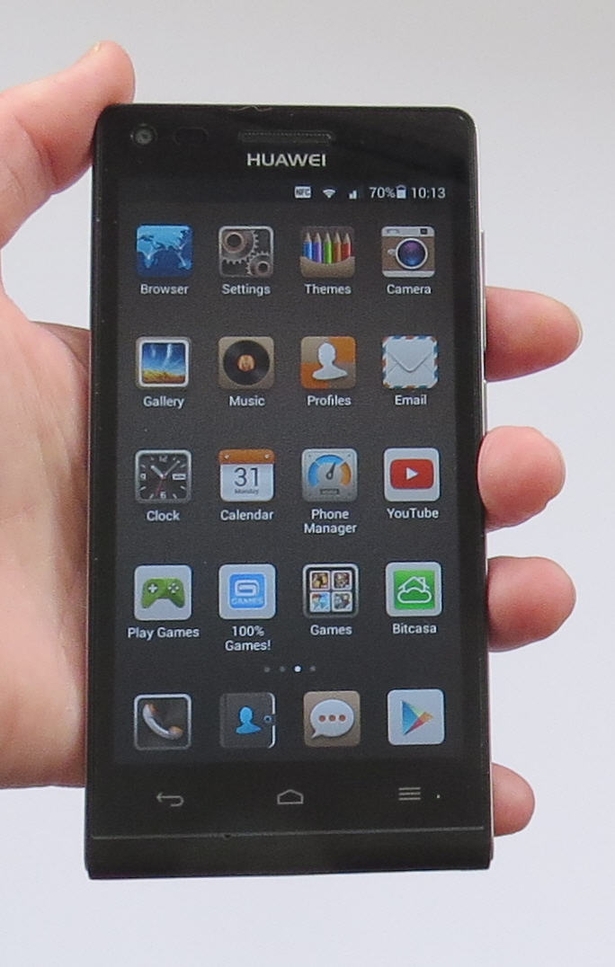
Huawei Ascend G6: Affordable 4G smartphone [Review]
I was quite a fan of the Huawei Ascend P7 when I reviewed it last month, noting that it was a worthy flagship phone. At the high-end of the market, Huawei's problem is less what it does with its handsets, and more the profile it gets as a company in competition with the likes of Sony, Samsung and HTC.
The Ascend G6 is not a flagship handset. It is currently available for around £225 SIM-free as a 4G handset, and an otherwise identical 3G version will be around £185. It is a good comparator for the new £235 HTC Desire 610.
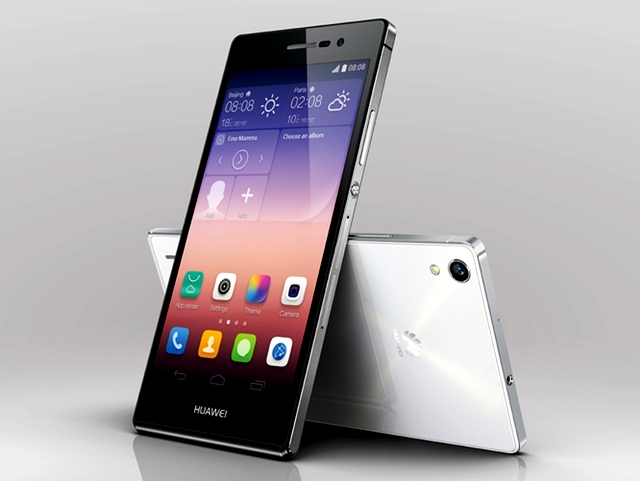
How to get the best out of your Huawei Ascend P7
Huawei is not such a well-known smartphone maker as the likes of Samsung, Sony or HTC. But it has recently launched a relatively low cost, relatively high spec phone in the Ascend P7, and despite some quibbles about battery life I gave it a thumbs up in my recent review.
The Ascend P7 runs Android 4.4 (KitKat), and like all higher-end handset makers Huawei has its own skin which it calls Emotion UI. You'll notice this immediately because all the app icons have been given a makeover. The "flat" design is clean and neat looking, and it makes a good first impression. More importantly, perhaps, Emotion UI adds a range of features to the Android staples. Let's take a look at how best to use those features to our advantage.

Samsung smartphones capture record market share, leave iPhones behind
According to new quarterly reports from IDC and Strategy Analytics, Samsung has increased its lead on the smartphone market in Q3 2013. The South Korean maker's shipments were higher than those of the next four-largest vendors, combined, according to the IDC data.
Samsung's smartphone shipments surpassed 80 million units (IDC -- 81.2 million; SA --88.4 million), leading to a market share above 30 percent (IDC -- 31.4 percent; SA -- 35.2 percent). Once again, the two research firms, both of which count shipments, provide different data sets for both shipments and market share. However, both reports say that in Q3 2013 smartphone shipments reached record levels (IDC -- 258.4 million; SA -- 251.4 million).

Samsung dominates smartphone market, squashes Apple and other makers
There is a very good reason as to why some people easily dismiss any report on the state of the smartphone, tablet or phone market. Research companies often get their forecasts wrong, and just as often adjust the numbers to reflect any significant change in shipments or sales. Credibility is gained over a long period of time, through spot-on analysis and research, but is easily lost after a questionable report.
Truth be told, predicting the future is a fool's errand. Those who rely on forecasts in order to make their case are just as likely to withdraw their bold remarks once the quarterly or yearly reports arrive. The credibility issue grows bigger when two research companies, namely IDC and Strategy Analytics, cannot agree on counting smartphone shipments, in a single quarter.

Windows Phone battles BlackBerry for a distant third-place
Ouch! The latest report from market research company Gartner crushes Microsoft's dreams of Windows Phone breaking away from the smartphone operating system bottom pack. In Q1 2013, with a low market share of just 2.9 percent, Windows Phone battled with BlackBerry for the consolation spot of third most popular platform (and lost), far away from either Android or iOS. The green droid is still the dominant leader, followed from afar by Apple's OS.
"There are two clear leaders in the OS market and Android’s dominance in the OS market is unshakable", says Gartner's Anshul Gupta. "With new OSs coming to market such as Tizen, Firefox and Jolla we expect some market share to be eroded but not enough to question Android’s volume leadership". What he doesn't says is that the future is bleak for both Windows Phone and BlackBerry, which have to showcase their strength to survive the future string of contenders. Let's take a look at the numbers.
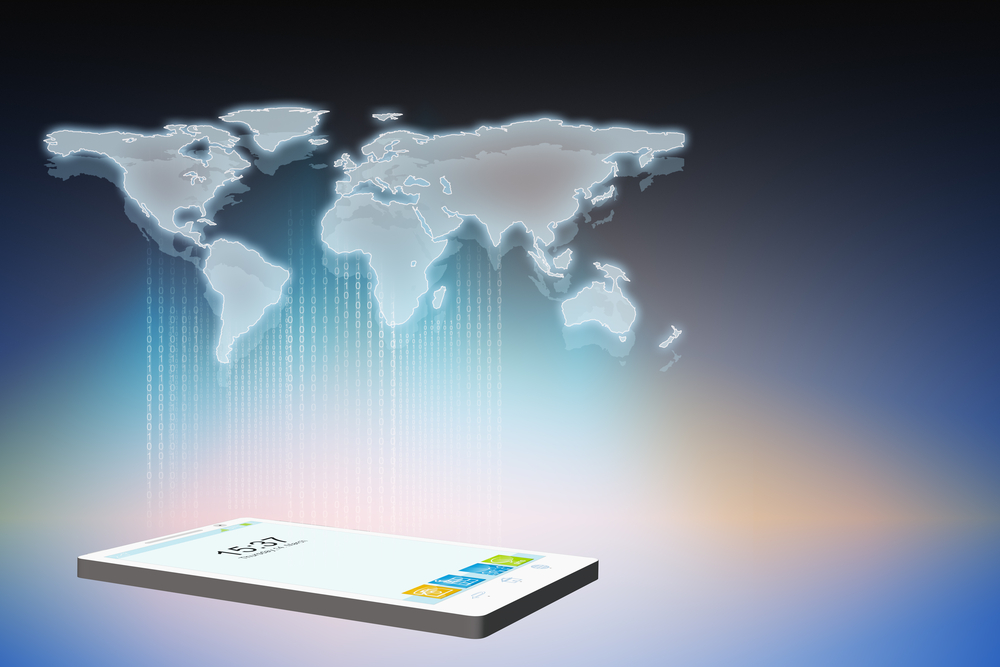
Smartphones take the world stage, as BlackBerry and Nokia shipments collapse
In February, I predicted that smartphone sales would surpass feature phones within a couple quarters. Looks like I am likely wrong, as shipments already have, according to IDC. Last month the analyst firm predicted such circumstance this year, which by Q1 is sooner than anyone anticipated.
Meanwhile, something more shocking occurred turn first quarter -- my, God, when will the milestones stop? Chinese manufacturers Huawei and ZTE pushed BlackBerry and Nokia out of the top five. Right Nokia -- the company that invented the smartphone and had, until last year, a 14 year-run as global handset leader. The worldwide phone market undergoes dramatic changes, and they're far from over.
